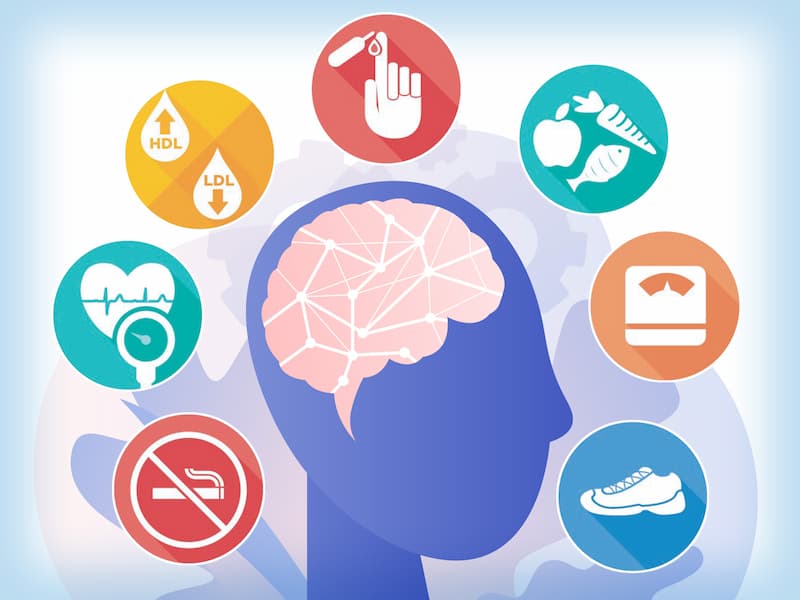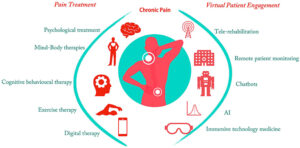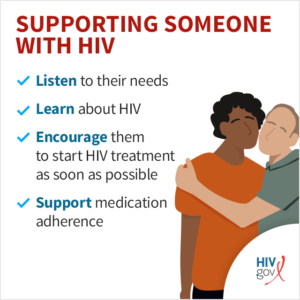Physical Address
304 North Cardinal St.
Dorchester Center, MA 02124

Early testing and medical care for HIV are crucial for promoting HIV awareness and preventing the spread of the virus. Human immunodeficiency virus (HIV) is a global health concern, with millions of people affected worldwide.
In order to effectively combat the spread of HIV, it is essential to prioritize early testing and access to medical care. By identifying individuals who are infected early on, it allows for prompt treatment and management, reducing the risk of further transmission.
Moreover, early testing allows for education and awareness about HIV, helping to break down the stigma associated with the virus. This article highlights the importance of early testing and medical care in promoting HIV awareness, and the positive impact it can have on individuals and communities.

Creating awareness about HIV is crucial in combating the global impact of this disease. HIV, or Human Immunodeficiency Virus, has affected millions of people worldwide, with devastating consequences for individuals, families, and communities. In this blog post, we will delve into the importance of HIV awareness, discussing its global impact, addressing stigma and discrimination, and emphasizing the significance of early testing and medical care. By spreading knowledge and promoting a culture of understanding, we can work towards reducing the transmission of HIV and ensuring that those living with the virus receive the necessary support and medical interventions. Let’s dive into the key aspects of HIV awareness and its significance in our society.
The impact of HIV is not limited to any specific region or population. It is a global issue that affects people from all walks of life. The statistics surrounding HIV are alarming, with approximately 38 million people living with the virus worldwide. As of 2020, it was estimated that 1.5 million people were newly infected with HIV, and 690,000 people died from AIDS-related illnesses. These numbers highlight the urgent need for HIV awareness programs and initiatives that educate individuals about the virus, its spread, and prevention strategies.
Stigma and discrimination against people living with HIV continue to be major barriers in the fight against the disease. Such negative attitudes and prejudices can prevent individuals from seeking HIV testing, treatment, and support. It is crucial to address and challenge these misconceptions through HIV awareness campaigns, which promote understanding, empathy, and acceptance. By dispelling myths and normalizing discussions around HIV, we can create a more inclusive and supportive environment for those affected by the virus.
Early detection of HIV is essential for effective medical management and to minimize the risk of transmission. Regular testing allows individuals to know their HIV status and access appropriate care, including antiretroviral therapy (ART) that effectively controls the virus’ progression. HIV awareness initiatives play a vital role in encouraging individuals to get tested, eliminating barriers such as fear, and providing knowledge about the available medical resources and support networks. By promoting early testing and medical care, we can improve the quality of life for those living with HIV and reduce the overall burden of the disease.
Understanding early testing is crucial in promoting HIV awareness and ensuring proper medical care. By detecting the virus at its early stages, individuals can seek appropriate treatment, prevent the spread of HIV, and lead healthier lives. Take control of your health by getting tested early.
Early testing for HIV is crucial in promoting awareness and preventing the spread of the virus. By detecting the virus in its early stages, individuals can receive timely medical care and support, leading to better outcomes for their health. In this section, we will explore the benefits of early HIV testing and the available testing methods.
The Benefits of Early HIV Testing:
Early HIV testing offers a range of benefits that can positively impact an individual’s life. Here are some key advantages of getting tested early:
1. Timely treatment: With early detection, individuals can start treatment as soon as possible, reducing the risk of developing complications and improving their overall health outcomes.
2. Reduced transmission risk: Early testing allows individuals to take necessary precautions to prevent transmitting the virus to others. By accessing support and guidance, they can better understand how to protect their partners and prevent further spread of HIV.
3. Improved quality of life: Early diagnosis opens doors to comprehensive medical care, counseling, and support services. These resources can help individuals manage their condition, cope with challenges, and lead fulfilling lives.
4. Peace of mind: Knowing one’s HIV status, even if positive, can bring a sense of relief and peace of mind. It enables individuals to make informed decisions about their health and take control of their future.
Available Testing Methods:
To facilitate early HIV testing, various methods are available that offer accurate and reliable results. These testing methods include:
1. Antibody tests: This common testing method detects antibodies produced by the body in response to HIV infection. These tests are quick, affordable, and accessible at healthcare facilities, community clinics, and even self-testing kits.
2. Nucleic acid tests: These tests detect the presence of the virus’s genetic material (RNA or DNA) in the blood. Nucleic acid tests are highly sensitive and can detect early infections, but they are often more expensive and require specialized laboratory facilities.
3. Rapid tests: Rapid HIV tests provide results within minutes, offering convenience, privacy, and immediate access to counseling and support services. These tests are particularly useful in outreach programs, mobile clinics, and remote areas.
4. Home testing kits: Home testing kits allow individuals to test for HIV in the privacy of their own homes. These kits typically provide step-by-step instructions and include a toll-free helpline for any questions or concerns.
Remember, it is important to consult a healthcare professional to determine the most suitable testing method based on individual circumstances and risk factors.
Getting timely medical treatment is crucial for individuals living with HIV. It not only helps in managing the virus effectively but also improves the overall quality of life. Let’s explore the importance of timely treatment and the supportive healthcare services available.
Early medical intervention plays a significant role in the management of HIV infection. Timely treatment helps to suppress the virus, slowing down its progression and reducing the risk of developing severe complications. Initiating antiretroviral therapy (ART) as soon as possible after testing positive for HIV can greatly improve health outcomes.
By promptly accessing medical care, individuals can take control of their health and potentially avoid the onset of opportunistic infections. Regular check-ups and monitoring help ensure that any changes in the immune system can be identified early, allowing for timely adjustments to the treatment plan.
In addition to medical treatment, supportive healthcare services play a vital role in the overall care of individuals living with HIV. These services can address various physical, mental, and social needs, improving their well-being and resilience.
Supportive healthcare services may include:
These services, combined with regular medical care, create a comprehensive support system for individuals living with HIV. Accessing medical care and supportive services not only promotes personal health but also contributes to the prevention of new HIV infections within communities.
Promoting HIV awareness plays a crucial role in preventing the spread of the virus and ensuring that individuals living with HIV receive the necessary support and medical care. By raising awareness about HIV, we can dispel myths, reduce stigma, and encourage early testing and treatment. In this blog post, we will explore two key aspects of promoting HIV awareness: community education and outreach programs, as well as collaboration with healthcare providers.
One of the most effective ways to promote HIV awareness is through community education and outreach programs. These initiatives aim to reach individuals at risk of HIV transmission, as well as the general public, in order to provide accurate information about HIV prevention, testing, and treatment options.
Through interactive workshops, presentations, and informational materials, community education programs can empower individuals with the knowledge they need to protect themselves and others from HIV. These programs can cover a range of topics, including safe sex practices, the importance of regular testing, and the availability of pre-exposure prophylaxis (PrEP) as a prevention method.
By utilizing various media channels, such as social media, posters, brochures, and community events, these programs can reach a wide audience and effectively disseminate important information. They can also offer free or low-cost HIV testing, ensuring easy access for individuals who may be hesitant or unable to seek testing elsewhere.
Collaboration with healthcare providers is essential in promoting HIV awareness. Healthcare professionals play a pivotal role in providing accurate and up-to-date information about HIV, as well as offering HIV testing and medical care.
By establishing partnerships with healthcare providers, organizations can ensure that individuals receive comprehensive care and support throughout their HIV journey. This collaboration may involve hosting trainings for healthcare professionals on best practices in HIV management, promoting routine HIV testing as part of regular healthcare check-ups, and facilitating referrals to relevant HIV services.
Through close collaboration, healthcare providers can also offer prompt and accurate HIV diagnoses, initiate timely treatment, and provide ongoing care and support. Additionally, they can assist in connecting individuals to resources and support groups that address the psychosocial, mental health, and emotional aspects of living with HIV.
Promoting HIV awareness through collaboration with healthcare providers ensures that individuals are well-informed about HIV, can access timely testing and care, and are empowered to make informed decisions about their health. Together, we can make a difference in reducing new HIV infections and improving the quality of life for those living with HIV.
Promote HIV awareness and encourage early testing and medical care for individuals to empower them in their health journey. Discover the importance of timely intervention and access to necessary resources for a proactive approach toward managing HIV.
Advocacy for policy changes plays a crucial role in empowering individuals when it comes to promoting HIV awareness. Through advocating for policies that prioritize early testing and medical care, we can ensure that more people have access to the necessary resources and support. This includes pushing for policies that promote HIV testing as a routine part of healthcare service and working towards eliminating discrimination and stigma associated with HIV/AIDS.
Providing counseling and support is another essential aspect of empowering individuals in the context of HIV awareness. People living with HIV often face numerous psychological, emotional, and social challenges. By offering counseling services, both pre and post-diagnosis, we can help individuals navigate these issues and provide them with the much-needed emotional support. Counseling sessions can help individuals address their fears, anxieties, and concerns, enabling them to live a positive and fulfilling life.
Ensuring access to medical care is vital in empowering individuals and promoting early detection and treatment of HIV. Regular medical check-ups, including routine screenings for HIV, are crucial for early detection and timely intervention. By ensuring that medical care facilities are readily available and easily accessible, individuals can receive proper medical attention and necessary treatment without any delays. Additionally, providing information on available healthcare resources, such as clinics and support groups, can further empower individuals to take charge of their health and well-being.

Credit: www.healthcarousel.com
Early testing for HIV allows for timely medical care, which can significantly improve health outcomes. It also helps prevent the spread of the virus to others unknowingly and provides an opportunity to seek support and access resources. Early detection allows for early treatment, which increases the chances of leading a healthy and normal life.
HIV testing plays a crucial role in preventing the spread of the virus. By identifying individuals who are HIV positive but unaware of their status, testing helps to link them to medical care and treatment. This reduces their risk of transmitting the virus to others and promotes safer practices, such as the use of condoms and practicing safe injection techniques.
Several barriers can hinder individuals from accessing medical care for HIV. These include stigma and discrimination, lack of knowledge about available services, financial constraints, and limited access to healthcare facilities. Overcoming these barriers requires comprehensive efforts, including community education, destigmatization campaigns, and ensuring affordable and accessible healthcare services.
Receiving medical care after testing positive for HIV is crucial for managing the virus and maintaining overall health. Medical care helps individuals access antiretroviral therapy, which can effectively control the virus, improve immune function, and reduce the risk of developing complications.
Regular medical care also allows for ongoing monitoring and support for managing the physical and emotional aspects of living with HIV.
Early testing and medical care play a crucial role in promoting HIV awareness. By recognizing the importance of getting tested and seeking medical attention, individuals can take control of their health and prevent the spread of HIV. Regular testing not only ensures early diagnosis but also enables timely intervention and access to various treatment options.
By spreading awareness and encouraging early testing, we can create a society that prioritizes HIV prevention, care, and support for all.

